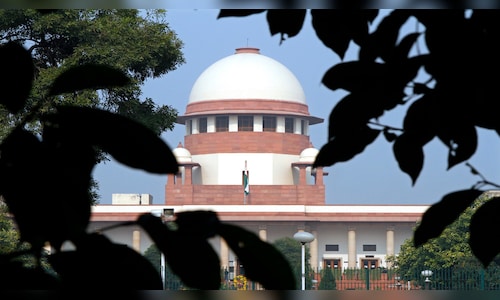The Supreme Court of India has ruled that the National Medical Commission’s (NMC) guideline mandating that MBBS aspirants must have “both hands intact” is discriminatory and in need of revision.
The court held that the requirement contradicts the principles of the Rights of Persons with Disabilities (RPwD) Act and Article 41 of the Constitution, which directs the state to ensure access to work and education for PwDs.
A bench comprising Justices BR Gavai and KV Viswanathan observed that the guideline promotes ableism by unfairly favouring individuals with typical physical faculties.
“In our view, this prescription of ‘both hands intact…’ is completely antithetical to Article 41 of the Constitution; the principles enshrined in the United Nations Convention on the Rights of Persons with Disabilities and the salutary provisions of the RPwD Act. It also indicates a classification which is overbroad and glorifies ‘ableism’,” the judgment stated.
The case arose after a candidate who had cleared the National Eligibility cum Entrance Test (NEET) 2024 was denied admission due to the eligibility criteria under NMC’s guidelines. The appellant has a locomotor disability of 50% and a speech and language disability of 20%, with a final disability computation of 58%. Seeking an assessment of his disability at the Government Medical College, Chandigarh, he was declared ineligible without any functional evaluation or reasoning by the Disability Assessment Board.
After the Punjab and Haryana High Court refused to intervene, citing its inability to override expert opinion, the appellant approached the Supreme Court. The court then constituted a five-member board for reassessment. While the board upheld the existing rule under the Graduate Medical Education Regulations (Amendment), 2019, one member, Dr Satendra Singh, dissented. He advocated for allowing candidates to pursue MBBS and later decide their area of specialisation.
The NMC guidelines on admission of students with “special disabilities” under the RPwD Act 2016 stipulates: “Both hands intact, with intact sensations, sufficient strength and range of motion are essential to be considered eligible for medical course.”
“In our considered view, the correct approach is the one that Dr. Satendra Singh has adopted viz.- to not bar a candidate at the threshold but grant the candidate the choice after completing the MBBS Course, to decide whether he wishes to specialize in a nonsurgical or medical branch or continue as a General Duty Medical Officer,” the Court observed.
The ruling also referred to its 2024 judgment in the Omkar Ramchandra Gond v. Union of India, where it had previously called for changes in the NMC’s criteria. The court reiterated that the “both hands intact” rule lacks legal sanctity as it fails to consider individual functional assessments.
Asserting the necessity for reasonable accommodation, the court noted that the NMC had previously assured it of a review committee to revise the guidelines, which must include experts or individuals with disabilities. It directed the matter to be listed on March 3 to assess the progress on new eligibility criteria.
The Supreme Court also ruled out on Thursday (February 20) that the NEET-UG exam is compulsory for the students who want to pursue an MBBS course from foreign universities.
(Edited by : Shoma Bhattacharjee)


